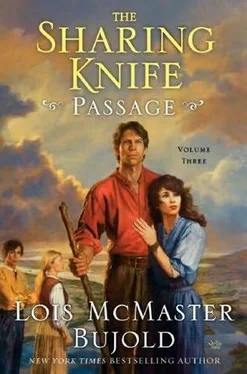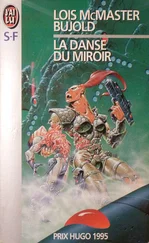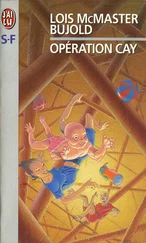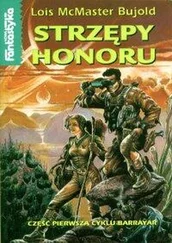Fawn thought the greater fear might be perfectly correct understandings, actually. As the skiff eased alongside the flatboat, Dag dropped down to the back deck to catch the painter-rope Fawn tossed up to him.
He sniffed, and inquired dryly, “Nice boat ride?”
“Uh-huh,” said Fawn, staring up in defiance.
“Whit, Barr…you look a mite sheepish, one could say.”
“No, we only smell it,” muttered Whit.
“It wasn’t my doing!” Barr blurted.
Dag’s lips twisted up. “This time, Barr, I believe you.”
He leaned down to give them each a hand up in turn, and oversee the skiff properly tied.
Whit said uneasily, “Are you going to turn us in?”
“Who to? They weren’t my sheep.” He added after a moment, “Or yours.”
Barr breathed stealthy relief, and Dag shepherded Fawn firmly to bed.
He actually kept his face straight until he had a pillow stuffed over it. The chortles that then leaked through had Fawn poking him. “Stop that!”
It took a while till he quieted down.
The Fetch left its mooring soon after dawn, when the Snapping Turtle’s bleary crew were just beginning to search the nearby woods for their escaped mutton. The sweep-men draped on their oars maintained just enough motion to give steering way to the rudder, and sometimes not even that. Even Berry seemed content to drift at the river’s pace. Despite being as cotton-headed from lack of sleep as everyone else was from other excesses, Fawn kept strong tea coming, and as the morning wore on folks slowly recovered.
The river’s pace picked up abruptly around noon, when a great brown flood swept in from the right, and the current grew rolling.
“That’s not the Gray already, is it?” Fawn asked Berry, startled, when she looked out her moving kitchen window to find the shore grown alarmingly distant.
“Nope,” said Berry, in a tone of satisfaction, and took another swig of tea. “That’s the Beargrass River. It swings up through Raintree to Farmer’s Flats. We’re three-fourths of the way from Tripoint to the Confluence now! They must have had heavy storms in Raintree this past week—I haven’t often seen the Beargrass this high.”
“Do boats go on it?” Fawn peered some more.
“Sure. All the way to Farmer’s Flats, which is the head of navigation, pretty much. Which is why the town is where it is, I ’spect. The Beargrass is almost as busy as the Grace.”
Blighted Greenspring had lain on one of the Beargrass’s upper tributaries, as Fawn recalled soberly. Bonemarsh Camp, too. Last summer’s grim campaign against the malice had all played out north of the big town of Farmer’s Flats; the disruption hadn’t reached down here. Dag might thank the absent gods, but Fawn thought the thanks were better due to Dag.
With the addition of the Beargrass, the Grace nearly topped its banks, and in some places overflowed them. Some of the lower-lying islands were drowned already, bare trees sticking up from the water as if growing out of a lake, except that the lake was moving sideways at a fair clip. Fawn sometimes saw animals trapped up the island trees; possums and raccoons, of course, a couple of black bears, and once, excitingly, a catamount, quite close. They passed a wild pig swimming strongly in the current, and the men aboard were barely restrained from trying to hunt it from the boat. Floating wrack either lodged on or broke loose dangerously from towheads, those accumulations of trees and logs at the top ends of the islands that from a distance resembled, the boatmen said, the unruly locks of a fair-haired boy, hence the name Beargrass.
Toward evening, Berry put two men on each sweep to fight the unwieldy Fetch in to shore. As they were tying up in the lee of a bend, a peculiar arrangement floated past in the dusk: two flatboats lashed together side by side. The crew apparently struggled in vain to steer this lumbering rig, because it was slowly spinning in the current.
Out on the back deck, Bo called across the water for them to break up and tie to shore before dark, but the men on the double-boat either didn’t hear or didn’t understand; their return cries were unintelligible.
“Why’d they fix their boats together like that?” asked Fawn curiously, coming out to look.
“I expect because they’re fool Raintree boys who don’t know a thing about the river and have got no business being on it,” said Bo, and spat over the side for emphasis.
“For company, maybe, or not to lose each other in the dark. It likely made ’em feel safer, out on this big river,” said Whit slowly. “Even the Fetch is starting to look pretty small.”
“Do you see why it don’t make ’em safer?” said Berry.
“Oh, I do!” said Fawn excitedly, staring after the receding Raintree flatties.
Berry grinned. “I bet you do. Now wait for Whit.”
Whit squinted into the dusk and said slowly, “They’re trying to move twice the weight with half the oars.”
Fawn nodded vigorously.
“That’s right,” said Berry, straightening in satisfaction. “We may make a riverman of you yet.”
Whit smiled blindingly at her. “I sure hope so.”
She smiled back involuntarily; not her usual wry grin, but something unwitting and almost unwilling. She rubbed her lips and shook her head. “And to top it, they’re running at night. Unless they got themselves their very own Lakewalker aboard, not too bright, I’m afraid.” She leaned on the back rail and stared down the river, her eyes growing grave and gray in the gathering gloom. Fawn barely heard her mutter: “Papa was no fool country boy. So what happened?”
During an easy stretch of river in the morning, Berry took Whit topside to give him a lesson on the steering oar. Mildly inspired, Dag assembled the Lakewalkers on the front deck for a drill in ground-veiling. He’d a shrewd suspicion such groundwork had been somewhat neglected by these two partners in favor of more vigorous training in bow, knife, sword, and spear.
Dag took the bench, Barr leaned against the goat pen, and Remo settled cross-legged on the deck. Eyes closed or open, they went around the lopsided circle taking turns at that inward-furling blindness that sacrificed perception for privacy—or invisibility. Unfairly, Barr had the stronger native groundsense of the pair, though unsurprisingly, Remo was more disciplined at handling what he had.
“You can’t veil yourself any better than that, and they let you out on patrol?” said Dag to Barr. “Amma Osprey must be harder up for patrollers than I thought.”
Barr waved a hand in protest. “Going blind like this feels like being a little kid again,” he complained. “Back to before my groundsense even came in.”
“There’s a deep difference in vulnerability. But leaking like you do, you’d never get close enough to a malice to make a rush with your knife.” If you had a knife.
“At that range, it could see me, couldn’t it? I mean, they do have eyes, right?”
“Usually. But that’s not the point. A good ground-veiling also resists ground-ripping, at least by a weak sessile or early molt. Which you’d better hope is what you’ll find yourself facing.” It occurred to Dag that this could be another use for his own weak ground-ripping ability—training young patrollers to resist it. He was tempted to test the notion, except for the certainty that it would scare the crap out of these two even worse than it scared him, and then there would be all those awkward explanations. But it was a heartening realization that any patroller who could resist a malice could resist Dag, as readily as a brawler could block a blow to his face. If he saw the blow coming, leastways.
But not any farmer.
He bit his lip and pushed that troubling thought aside for later examination. “And whether you’re the patrol member who places the knife or not, the better your ground-veiling, the better the chance of not spending the week vomiting your guts out from the blight exposure, after.”
Читать дальше









